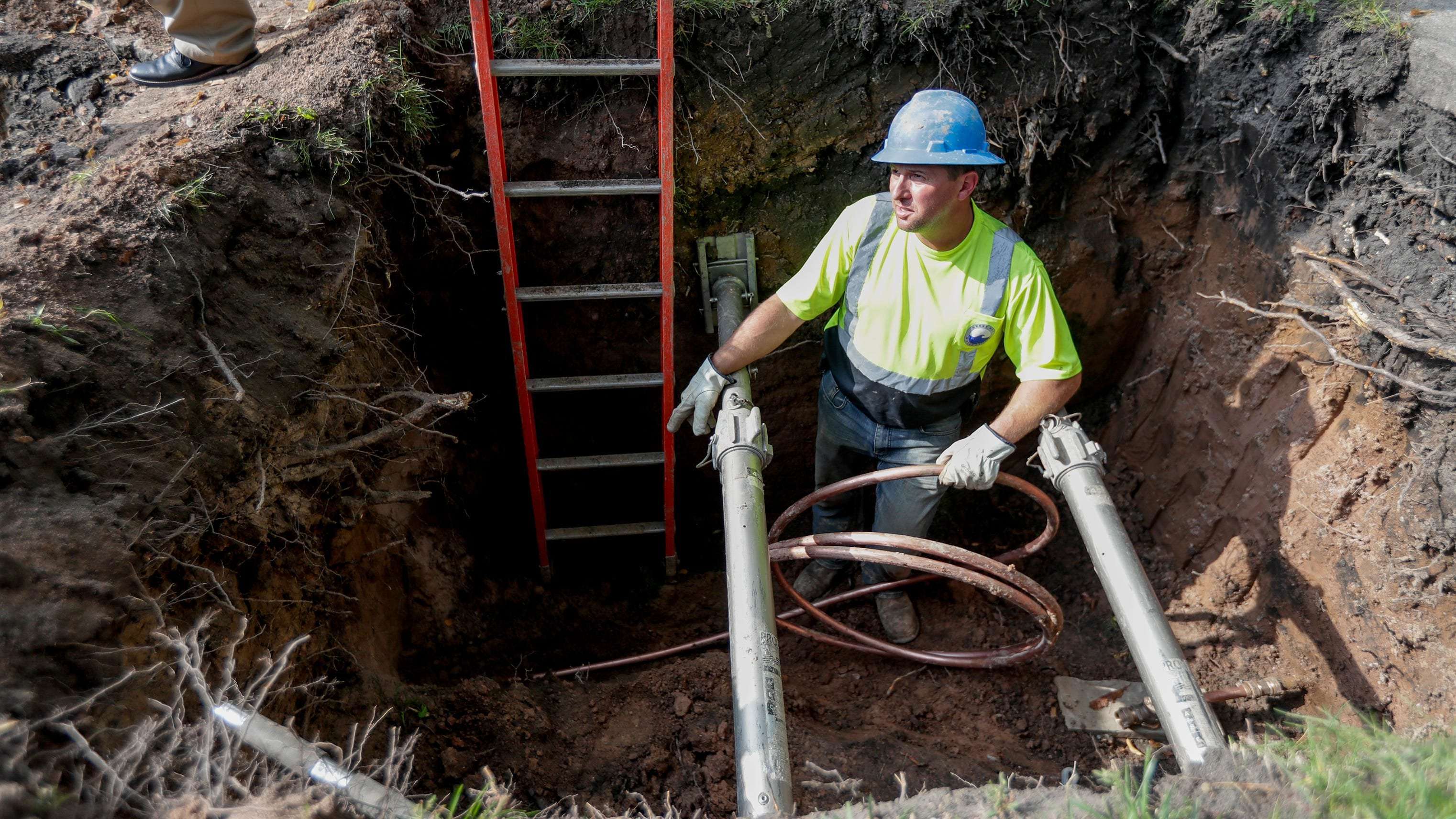'We made it happen': Green Bay Water Utility replaces city's final lead pipe after years-long effort
Show Caption Hide Caption Installation of copper pipes Installation of copper pipes to replace lead service lines in Green Bay, Wis.
GREEN BAY - The Green Bay Water Utility on Tuesday removed its last lead pipe in the city, closing a chapter in a years-long effort to improve water quality for residents.
Officials announced the milestone at a news conference Tuesday before removing an east-side lead service line and replacing it with a copper pipe. That marked the 1,782nd utility-owned line replaced since January 2016, when the utility ramped up lead removal amid the Flint, Michigan, water crisis.
"Our (lead) levels are way down," said Nancy Quirk, the utility's general manager.
Green Bay last installed lead pipes in 1944 and began replacing them in 1990, when the city had 4,400. In 2011, the water utility found levels in some homes were above limits set by the U.S. Environmental Protection Agency and identified 1,782 utility-owned and 247 privately owned service lines that needed replacing.
RELATED: EPA administrator unveils new rules to curb lead in U.S. water systems
RELATED: Green Bay water utility making progress in replacing lead service lines
Lead poisoning can cause brain damage and result in learning disabilities, developmental delays or reduced attention span, according to the state Department of Health Services. Children are the most vulnerable to those health risks.
Quirk said the utility has eliminated all but one privately owned lead pipe. The final line goes through a home pending foreclosure and will be replaced once it belongs to the bank.
The utility spent over $6 million to replace the city's remaining lead service lines, in part through two rate increases over the five-year period. The initiative also got a boost from the Lambeau Field tax credit and loans from the state Department of Natural Resources. Homeowners with lead lines were not required to pay for a replacement.
Quirk believed it was important to remove the source of the lead entirely instead of using a chemical treatment, which she feared could increase phosphorus levels in the Fox River. The utility also flushes the system to keep water clean and will monitor copper levels to ensure the new pipes don't cause any problems.
"We made it happen," she said.
Contact Haley BeMiller at [email protected]. Follow her on Twitter at @haleybemiller.

AureusVeritas on October 6th, 2020 at 23:51 UTC »
Must be nice when the city actually does its job.
Flint is still using bad pipes, but is working on it though.
https://www.michiganradio.org/post/flint-restarting-lead-water-pipe-replacement-after-covid-19-delay
aunty-kelly on October 6th, 2020 at 23:11 UTC »
Thank you! That has to have been a gargantuan job.
mooburpcow on October 6th, 2020 at 21:56 UTC »